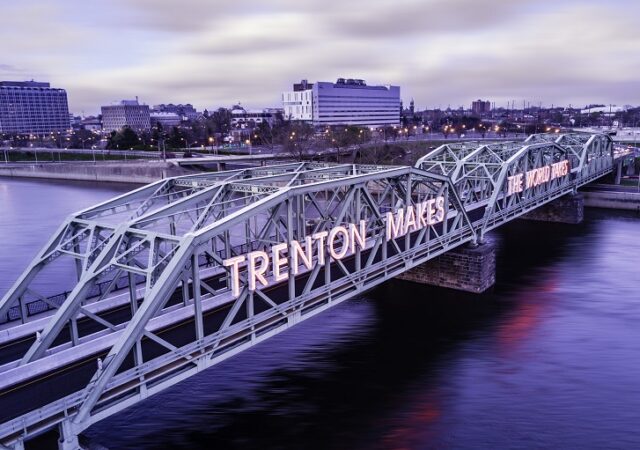New Jersey stands at a pivotal moment in its economic evolution. We’re presented with a unique opportunity based on consumer needs and federal priorities, including meaningful financial incentives. If New Jersey is to position itself as a hub for advanced industries such as data centers, energy storage and cold storage manufacturing, it needs to act.
Policy Page
Our updates and analysis will keep you informed of every piece of legislation and public policy issue that affects commercial real estate in New Jersey, from a zoning dispute or a proposed change to the tax code.
NAIOP NJ’s New Year’s resolution: Let’s get the next Energy Master Plan right
Overhauling the Energy Master Plan is an opportunity for impacted stakeholders, like you, to help improve what is currently an unrealistic policy document that has done little to accelerate achieving its lofty goals. Perhaps most striking about the current EMP is it lacks an unbiased estimate of what it’ll cost ratepayers, including commercial real estate owners and tenants. Gov. Phil Murphy acknowledged this glaring omission when he announced the 2024 EMP will “seek to better capture economic costs and benefits, as well as ratepayer impacts.”
Hospitality: A real game changer — it all comes down to people
In prepping for this piece, I reviewed the 72 articles I wrote since 2017 to identify common themes. Unsurprisingly, the common denominator was the crucial need to change how we do business with the end goal of improving people’s lives for a simpler and better quality of life — one that is less taxing and costly and more efficient and effective.
Earth Day 2023: Leave it better than you found it (and how CRE is a driving force)
One of the things I learned when I was a Boy Scout was to always leave your campsite better than you found it. Clean up any trash and don’t disturb the area more than necessary for pitching your tent and building a fire for cooking and staying warm. It might also mean leaving some chopped firewood for the next camper. That concept has remained with me, and I’m reminded of it whenever I’m encouraged to “reduce, reuse and recycle.” What a great lesson and advice for all of us to help celebrate this year’s Earth Day on April 22.
Premature electrification: Will we really have the power to last?
I admire the governor’s confidence that our utility companies and infrastructure will be ready to satisfy this new desire for electric power. However, it is unclear if New Jerseyans will be clamoring for more electricity. Most New Jerseyans can neither afford the price of an electric vehicle nor the additional costs of electric appliances, nor the utility itself. Nevertheless, I applaud the governor for prioritizing the need to combat climate change through an accelerated target of 100 percent clean energy by 2035, ambitious goal-setting for electrification of the state’s building sector with an additional 400,000 residential and 20,000 commercial units by 2030 and collaborative planning for the future of the state’s natural gas utilities.
Creative deals fueled by investors’ demand for niche property types
The consensus of this year’s Emerging Trends in Real Estate report for the U.S. and Canada report is one of cautious optimism that we will ride out any near-term slump and be well positioned for another period of sustained growth and strong returns, although a short and mild recession is expected. The article also highlights 10 trends for 2023, many of which have led to creative project deals throughout New Jersey.
Reduce, reuse, recycle: Vintage Jersey properties are ripe for repurposing
As one of America’s original 13 colonies, New Jersey has a rich and historic past. This includes former industrial properties or commerce centers in urban areas, more recently developed office parks in the suburbs and older office buildings — many of which largely stand empty — in central business districts. These vacant relics — together and individually — can be transformed into new, vibrant centers for live, work and play.
Finite resources demand a new approach to investment decisions
Ten years ago, Superstorm Sandy slammed into New Jersey, killing 38 people, devastating coastal areas, inflicting billions of dollars in damage and causing power outages for millions of residents and businesses for weeks. For many, it was a turning point that changed the way they invested and did business. Given today’s accelerating pace of life-altering disruptions — the pandemic, inflation, Russia’s invasion of Ukraine, extreme weather events — I believe New Jerseyans are ready to modify their behavior to reduce their risk and financial exposure to the adverse impacts from climate change.
Environmental justice: Restoring livability or Pandora’s box?
Enactment of the groundbreaking New Jersey Environmental Justice Law and the recently proposed rules to implement it are commendable efforts to improve conditions in communities burdened by decades of industrial pollution from Title V-covered facilities, notably solid waste facilities and power generation facilities. Although the proposed regulations appear not to currently impact the small-scale commercial and warehouse industry sectors, there is growing concern there will be a proliferation of municipalities adopting ordinances under the guise of environmental justice that are actually aimed at thwarting smart development and critical redevelopment and that broaden the types of regulated facilities.
Decarbonization, electrification journey driving investment and business decisions
As we celebrate Earth Day, it’s impressive to see how many more investment, siting, purchase and business decisions are being driven by growing public demand to reduce our carbon footprint. Government agencies, investors, consumers and businesses are quickly becoming aware of the need and benefits of embracing this paradigm shift. Owners and developers of commercial and industrial real estate property are increasingly accommodating their tenants’ demands for charging stations, solar panels and other brokered services. The popularity of electric vehicles (EV) continues to gain momentum across the globe as green investing is influencing automakers’ plans and the economics of owning an EV are becoming more favorable. Sustainability has become mainstream as society realizes its benefits, including lower costs, cleaner air, less traffic congestion, higher rate of return on investments, less dependence on foreign oil, better quality of life and less extreme weather.














